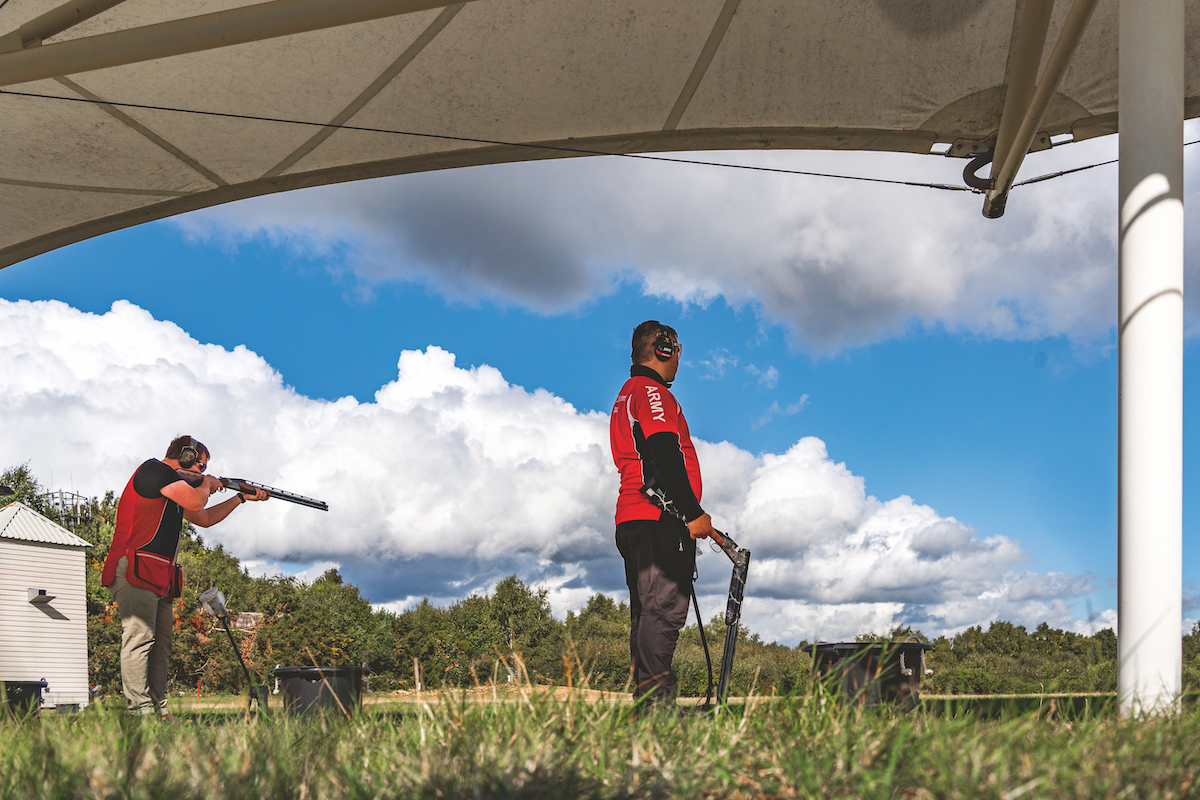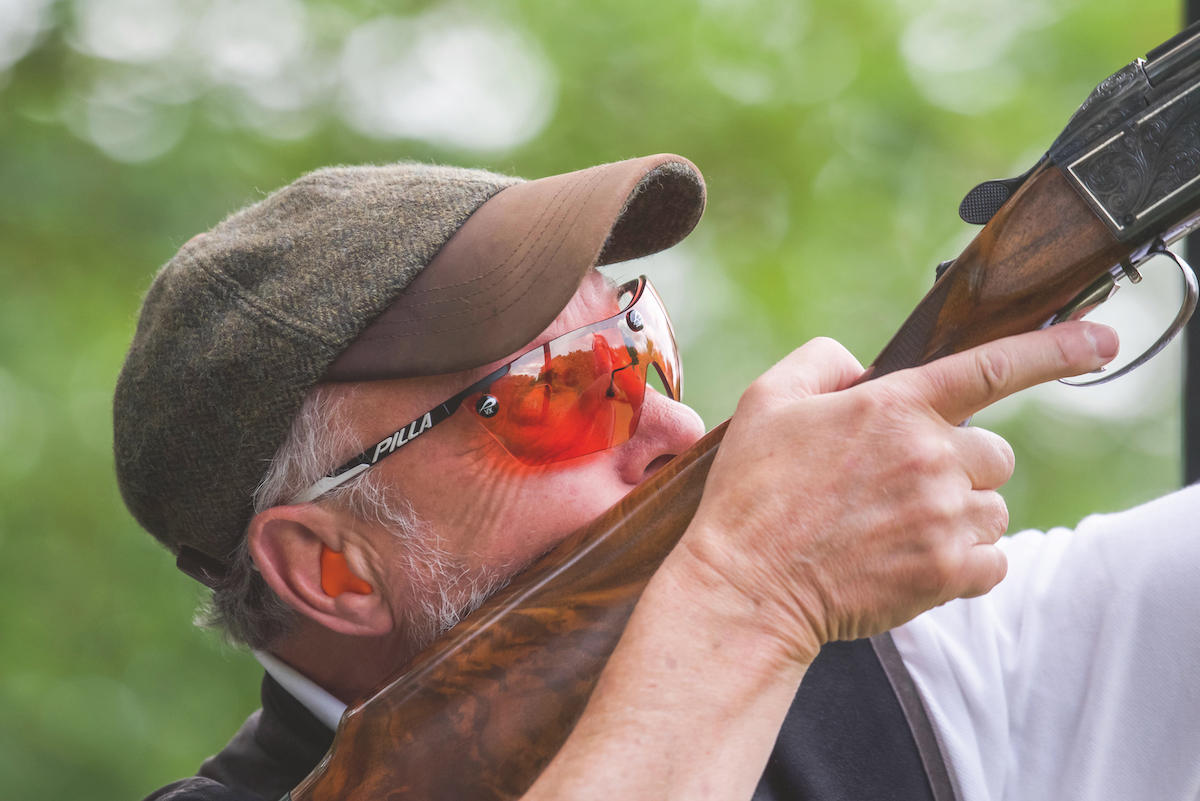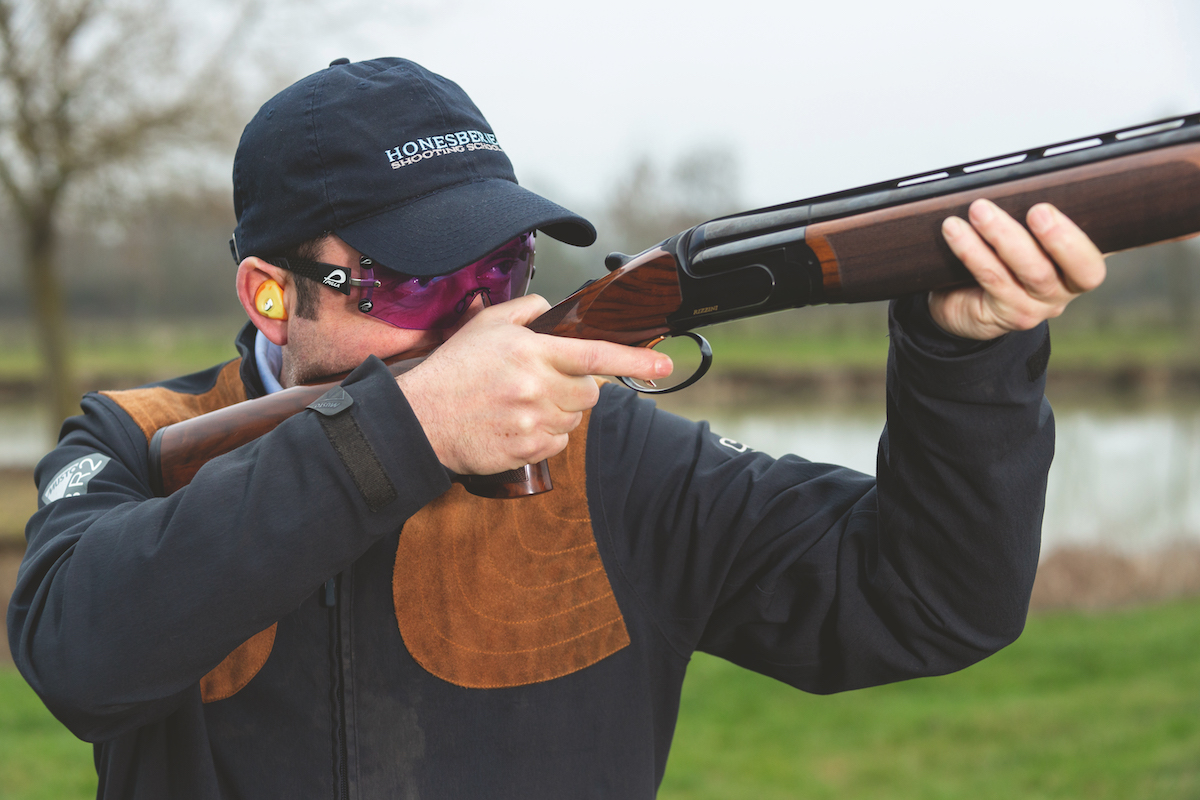Increase confidence in your shooting
Have you ever lost so much confidence in your shooting that you’ve considered hanging up your shotgun?

Everyone misses easy birds. From the humble amateur to the duke of wherever, nobody is perfect. Leg-pulling about missed sitters has been part and parcel of shooting since the days of frock coats and flintlocks and, more often than not, when someone knows why they have missed, things are soon back to normal. But what if one easy bird turns into a blank drive, a blank day or even two in a row? A loss of form is damaging to one’s confidence, and leaving things to fester is a recipe for disaster. Many a gun will say: “It’s just nice to be out in the countryside.” But you’ll be lucky to find anyone whose sole aim of going shooting is to pay for a long walk.
There is room for a serious question here: if your lack of confidence means you’re only pricking birds, should you be on the peg at all?
Speaking for myself, I don’t practice as much as I’d like and have probably had too many lessons with too many different instructors. I can hear them all whispering at once as the birds come over. One instructor was kind enough to tell me bluntly that I couldn’t shoot, despite having only seen me pull the trigger once and me having explained that I was low on confidence. The comment still haunts me.
More practice and a gunfitting session with a qualified instructor are two remedies that leap to mind, but what if you head out to the shooting ground after a torrid season and find that no matter what you do, the clays sail over your head? A gun’s confidence can be low for any number of reasons: the stress of work and family life playing on your mind (though game shooting is a release for many), returning to shooting after an enforced hiatus (injury or other commitments) and in extreme cases, falling out of love with the sport itself.
Whatever the reasons, for sports psychologist and shooting instructor Phil Coley, a positive mental attitude is vital to getting back on track.
“The key to enjoying the day is to be relaxed and to have run through your own personal routine,” says Phil. “This includes remembering the key pointers your instructor has given you pre-season. The key to being relaxed on the peg is visualising a few birds before the drive; look at some reference points to give you some idea of distance, as this helps you to imagine your movement to a forward point on a bird.
“The next step is to be ready for the first bird, to feel the increase in heart rate and feel ready for the challenge ahead. To shoot consistently you need to find the balance between relaxed and anxious, and you must rise to the challenge. Too many people feel fear and this is due to lack of preparation – it is a subconscious reaction to not being prepared. So preparation is vital, and this includes mental preparation.
“The other area to look at is how you react when things are going wrong on the peg; for me the key is to deal with a miss swiftly and simply. I have a mental reset technique where you take a step back, close your eyes for a second, open them and then step forward with a new focus as if you were starting the drive again. This routine can also be used when you get flustered on a drive during a big flush of birds.
“Most of us are competitive, but many of us are driven by fear of failure, so you need to be in control of what you are doing and with that you can improve your shooting. Visualise where you want to take the bird, feel what that shot will be like and most of all be in control. If you feel in control then you will see a positive change in your shooting.”
Leave anger at the gate
A sure sign action is needed comes when one’s self-discipline flounders during moments of high adrenaline – that second when frustration gets the better of us in our quest to see just one bird’s head snap back in mid air.
“Aggressive, bad tempered, testosterone-fuelled shooting leads to complete loss of timing and form if uncontrolled,” explains Mark Heath, instructor at the West London Shooting School. “In exceptional circumstances it’s a danger to others in the field as loss of judgement and reason can also occur. Frustrating as it can be, the best thing to do is watch a few birds fly over and monitor their line and speed carefully. Re-enter the action with a couple of confidence-boosters that are not too testing and concentrate on line, timing and lead. After the shoot, take a refresher lesson to rebuild your confidence so that your next day in the field can be approached with confidence rather than apprehension.”
While an examination of technique is critical, Mark is cautious about recommending a completely clean slate.
He says: “Only change the instructor if there is a lack of confidence in what is being taught. As an instructor in this situation it is important to take your time, especially if it is a client you have not taught before. You need to watch carefully and analyse why the client is struggling, then rebuild technique and confidence slowly. Too much advice too quickly will confuse. Generic advice from an inexperienced instructor is unlikely to assist in these circumstances; equally, patience from the client is required to absorb what is being taught over a period of time. There is rarely a quick fix with issues like this.”
The power of self-belief and self-deprecation
There are few shrinking violets in the game-shooting world and even those muted by loss in form shouldn’t be afraid to admit it. For Shooting Gazette columnist John Walker, you can do it, but you just have to believe you can.
“Though it is obviously a brain/hand/eye discipline, shooting is probably only 20 per cent physical – namely, having a gun that fits, knowing how to mount it, selecting the right ammunition and choosing when to pull the trigger. The remaining 80 per cent is mental – understanding what you are looking at, knowing when to mount, understanding the acceleration, height, direction, slip and curl of the quarry and, most of all, having the confidence that you will cleanly kill what you are aiming at.”
And don’t even think about quitting.
John says: “The great shooting coach Chris Cradock used to say that if you begin to miss your targets, don’t keep replicating your mount, swing and lead but try something different. Hanging up the gun does not address the problem.”
For many shoots the first drive is an opportunity for the shoot captain to gauge the team’s abilities. While John would never directly question a fellow gun’s abilities, he sees no harm in a quiet word from a shoot captain if a gun is struggling.
He says: “This is obviously easier if one is hosting and can stand behind the gun in question during a drive, but one has to balance the benefits of cautious advice against the continuing degradation of form brought on by the gun being scared witless by the shoot captain hovering astern.”
It’s certainly best to avoid feeling sorry for yourself, and anyone experiencing self-pity should take note of Ben Samuelson’s own brand of self-deprecation.
“Barely a day’s shooting goes by when I don’t consider giving up the sport at some point,” he says. “While I would never be so ill-mannered as to recommend it to someone else, it must have regularly crossed the minds of my fellow guns, pickers-up and beaters. In fact, I swear I’ve seen an expression in some of the more intelligent labradors’ eyes that seems to be suggesting it.” And according to Ben, practice does not always make perfect: “There aren’t enough clays in the world to sort out the consistency of my shooting. One drive I’m working out in advance a suitably modest reply to the inevitable compliments of my fellow guns, the next the wind carries a faint ironic cheer from the beating line when I finally connect.”
There’s no room for mollycoddling either.
“There’s nothing worse than sympathy. It’s when your fellow guns stop taking the p*** that you know they truly believe you couldn’t hit a cow’s arse with a banjo.”
Phil Coley: clayshootingsuccess.co.uk
West London Shooting School: shootingschool.co.uk








